



The redness of the red room at a Chandigarh hotel, on a March afternoon, pervades me the moment Zahan Kapoor walks in. His smile reaches the eyes, which gleam with an undying light. Forgive me, Lord Byron, for he walks in beauty, like the night/Of cloudless climes and starry skies/And all that’s best of dark and bright/Meet in his aspect and his eyes. It is the same face — well, almost — that can launch a thousand ships. Not a tall glass of water like his other famous male cousin, but the young scion of Hindi cinema’s Kapoor dynasty instantiates grace and gravitas in his gait — chin up, chest out, unhurried pace — an aristocratic politesse of yore.
Zahan’s early career breakthrough role in this year’s hit prison drama thriller web-series Black Warrant brought him to the 2nd Cinévesture International Film Festival, flanked by his two directors — Hansal Mehta (Faraaz) and Vikramaditya Motwane (showrunner of Black Warrant).
To look at Zahan — like his uncle Karan Kapoor, too, moulded in Greek god-like Shashi’s reflection, much like a young Shashi Kapoor himself who was carved in his father Prithviraj Kapoor’s likeness — is to be reminded of what God said to the Holy Trinity: “Let us make man in our image!” It is, also, to be reminded of the way an old man and a baby look at each other, with adoration, in the Italian Rennaisance artist Domenico Ghirlandaio’s tempera painting An Old Man and his Grandson (1490). Atlas-like Zahan shoulders the weight of not one but two mammoth legacies of his two grandfathers.
 Zahan Kapoor (centre) and his two grandfathers: Ramesh Sippy (left) and Shashi Kapoor.
Zahan Kapoor (centre) and his two grandfathers: Ramesh Sippy (left) and Shashi Kapoor.
His maternal granddad is Ramesh Sippy. “I don’t feel crushed, I feel inspired,” he says, “Sometimes, it’s a little bit heady, but honestly, 90 per cent of the time, it motivates me to be thorough and devoted. That’s the lens I use.”
By the time Zahan (purity, in Arabic) reached an impressionable age, Shashi Kapoor had hung up his boots. “Dada was always around at home, I was too little for him to talk about life or films with me. But food played a big part in keeping the family together. Both of us loved Chinese. I remember us going to Kamling restaurant in Bombay, eating chicken wings, and lychees for dessert,” he fondly recalls.
Nana Sippy, on the other hand, “was a real workaholic, who’s always at work,” adds Zahan. The filmography, on both sides of his family, is nothing short of “incredible. I love the spectrum,” he says, speaking desirously to live up to his Dada’s “wide spectrum of work: mainstream, foreign films, arthouse, to theatre.”
He calls Nana Sippy “a master of scene work”. “His ability to make a scene come to life is incredible. The scale of the film, of course…Sholay (1975), Shaan (1980) have been giant films to mount. But even a film like Shakti (1982), which is extremely intense in the sense that it’s not using flair of visual but emotional intensity, but it is also kind of intimate in a way. He made Buniyaad (1987-88, the TV serial) and these interpersonal dramas. He obviously has had a huge career,” says one half of the proud grandson. The other half “loves the idea that you can watch a [Shashi Kapoor] film like Chor Machaye Shor (1974) and The Deceivers (1988; also starring Pierce Brosnan), a Jab Jab Phool Khile (1965) and The Householder (1963), a Silsila (1981) and a Junoon (1978). It’s a huge range. It makes me think to myself: if he can do it, why can’t I? Give me a romantic song-and-dance sequence around the trees as well,” says a radiant Zahan.
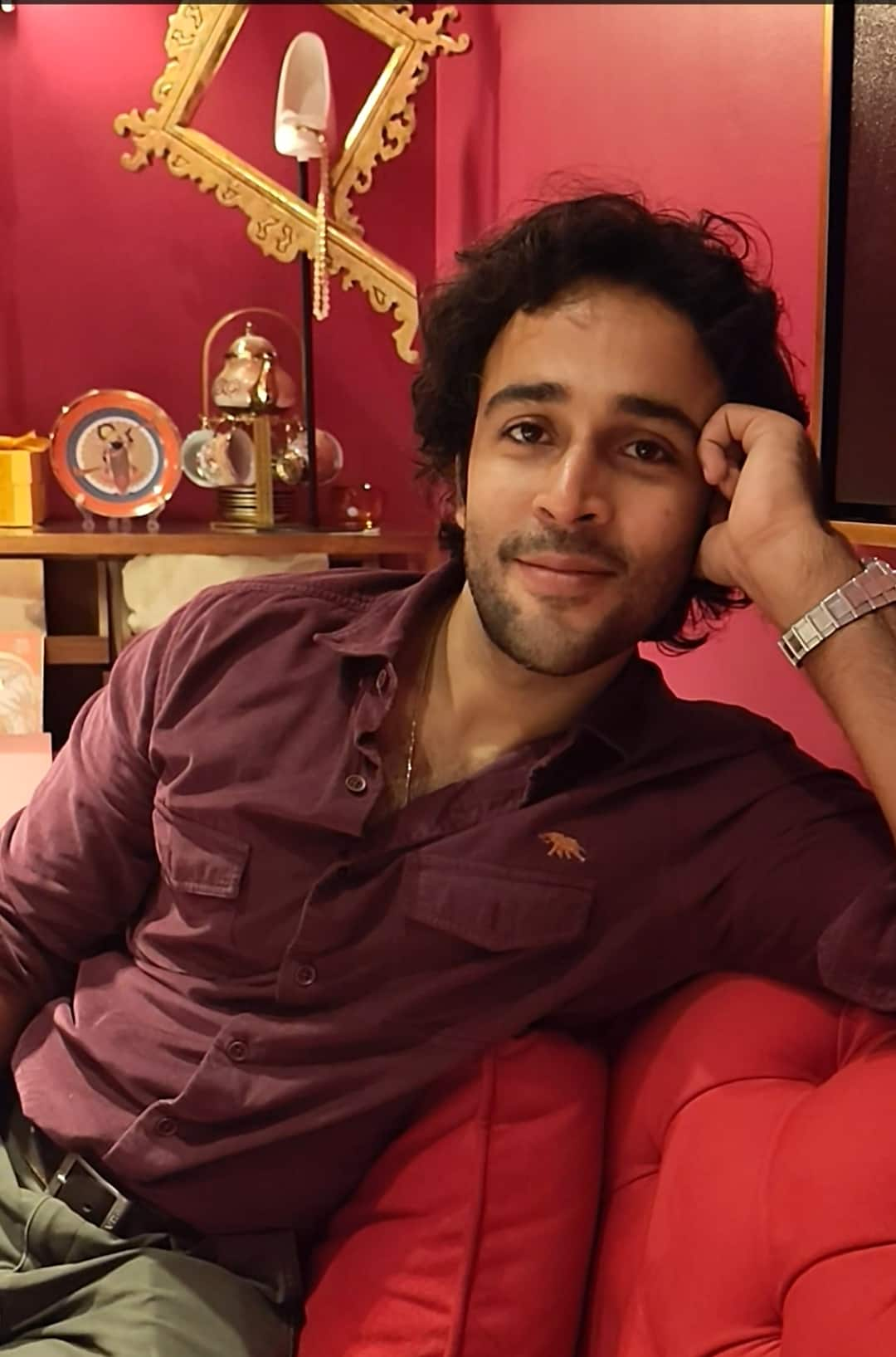 Zahan Kapoor. (Photo: Tanushree Ghosh)
Zahan Kapoor. (Photo: Tanushree Ghosh)
His earliest memory of watching something in a movie hall is of Tom and Jerry. He had followed it up with The Mask of Zorro (1998), Lagaan (2001), and Lord of the Rings (2001) in London — “LOTR left a huge impact on me. It showed me the magic of cinema. And, then, I saw Kaho Naa… Pyaar Hai (2000),” says the self-avowed Hrithik Roshan fanboy, “I was almost obsessed with him, bordering on insanity.”
“I love the craft of cinema. It is my first love,” says the man who, at age 15, wanted to be a horse-rider. “I wasn’t interested in either cinema or theatre in my middle years, it was just teenage angst, when you’re still figuring things out,” he adds.
The son of Kunal Kapoor and Sheena Sippy recalls being a curious and communicative child. His best childhood memory is a sense of boundless freedom — away in their small Goa getaway home, lolling about on beaches, swimming in open seas — far away from Bollywood’s glitzy spotlight and paparazzi that tailed the other Kapoors. “It’s just easy. It’s relaxed. That’s how I’ve grown up. Away from being watched constantly. We cherished our privacy,” he says.
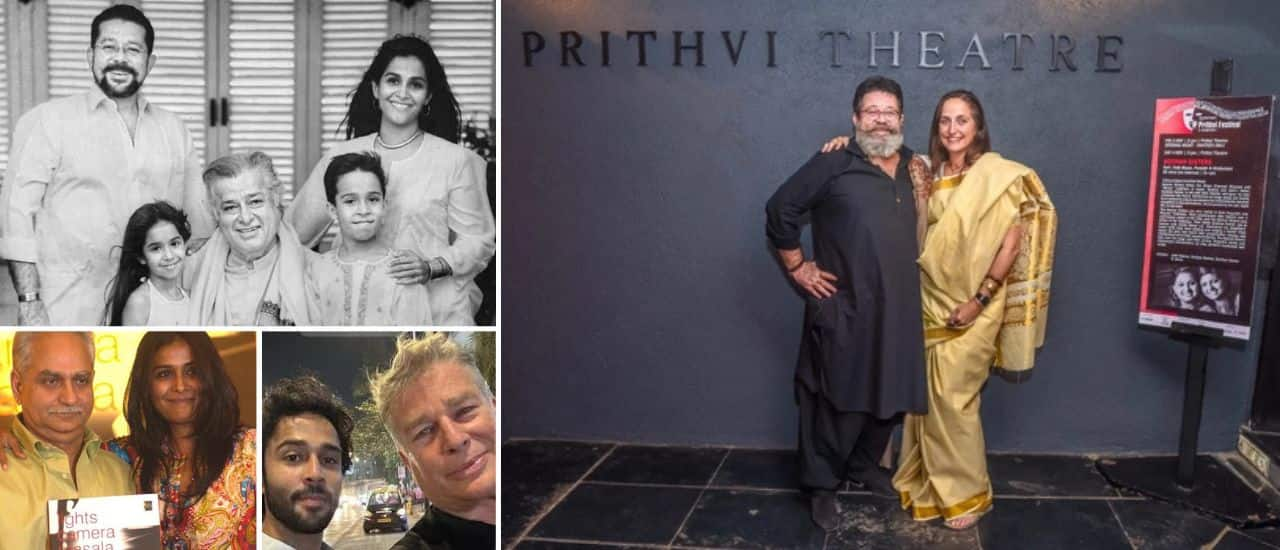 (Clockwise from top, left) An old family photograph with grandpa Shashi Kapoor; father Kunal Kapoor and aunt Sanjna Kapoor at Prithvi Theatre; with uncle Karan Kapoor; mother Sheena sippy with grandpa Ramesh Sippy.
(Clockwise from top, left) An old family photograph with grandpa Shashi Kapoor; father Kunal Kapoor and aunt Sanjna Kapoor at Prithvi Theatre; with uncle Karan Kapoor; mother Sheena sippy with grandpa Ramesh Sippy.
It would be aunt Sanjna Kapoor — the torchbearer of Prithvi Theatre — who would act as catalyst. She nudged him to assist veteran theatre director Sunil Shanbag. A workshop and some exercises gave him “a glimpse into an actor’s craft in a professional way,” he says, “I took to understanding performance, the craft, the technical side — as a seeker more than a bearer — I watched rehearsals of Naseer Sir (Naseeruddin Shah’s George Bernard Shaw play Arms and The Man) at the time. Over a lot of time, I just kept watching, observing, absorbing. I thought deeply, that my family and their foundations were in theatre. So, why not understand the strength of that. This is where you grow roots, and then the flowers will come. Now, I’m fully devoted to it.” Zahan attended theatre workshops at London’s National Youth Theatre and at Adishakti near Auroville.
In 2012, when Sanjna handed the baton of Prithvi to brother Kunal, her nephew Zahan got involved more seriously. “Every year, I have gotten more and more absorbed in the running of Prithvi Theatre. But, there were some years in between, from 2015-19, when I went through my own existential angst. I was very frustrated because my own career wasn’t moving. Over time, I developed this relationship of being responsible for theatre, and from a place of choosing it, not from any sense of a burden like I felt earlier. Now, I feel, it’s a blessing. It’s a privilege to be in this position…a bloody hard privilege. With privilege comes a huge responsibility. It takes grit and I wouldn’t have it any other way,” he says.
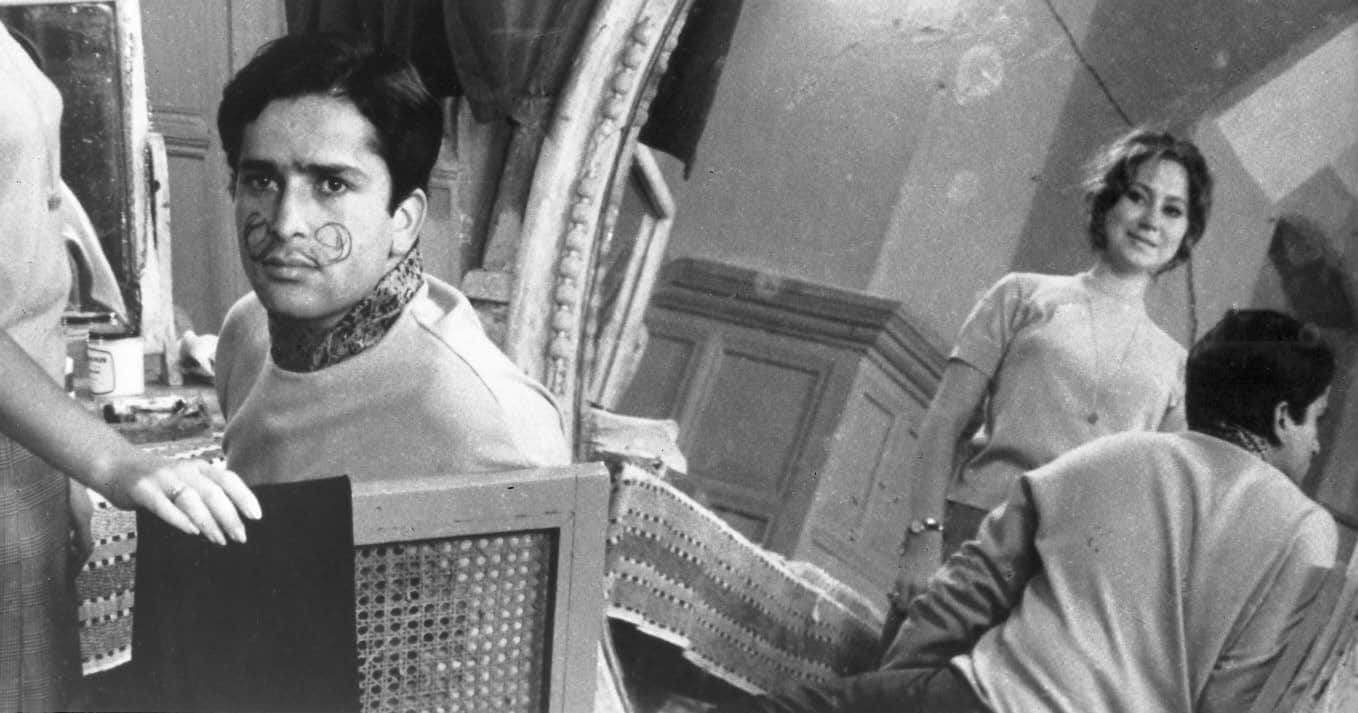 Shashi Kapoor and Jennifer Kendal in the green room of a play. (Photo via X)
Shashi Kapoor and Jennifer Kendal in the green room of a play. (Photo via X)
Shashi grew up in then travelling Prithvi theatres, in Prithviraj’s company (the stationary Prithvi Theatre was established by Shashi and Jennifer in 1978). And, then, he also joined his then girlfriend’s and later wife Jennifer Kendal’s company Shakespeareana, a touring theatre run by her parents Geoffrey Kendal and Laura Liddell. Shashi got exposed to playwrights like Shakespeare and Bernard Shaw. “It was his individual streak which makes him slightly different [from the other Kapoors],” says Zahan, adding, “And I’m lucky to have had that kind of exposure as well. So, when I want to offer that range of spectrum, I don’t want to tunnel vision myself. Now the question is of navigating and finding the opportunities and avoiding getting boxed in. It’s that this is the tip of the iceberg, there’s so much underneath it. Don’t let someone else come with a cardboard box and put you in it. I don’t want the cardboard boxes.”
He concurs that “theatre teaches you discipline and rigour. It is both immediate and grounding. It is in the now” while “cinema has scale and magic of a different kind.” Theatre — before cinema — marked Zahan’s acting debut. In 2019, with Makarand Deshpande’s Pitaji Please.
 Zahan Kapoor and Swanand Kirkire (right) in a still from their play 'Pitaji Please' (2019).
Zahan Kapoor and Swanand Kirkire (right) in a still from their play 'Pitaji Please' (2019).
“Mak Sir is famously known to write the first half of a script and then he might develop it or put it aside. In 2017, he’d given me the half-written script and then nothing happened. I was stressed and confused, having a hard time figuring out how to start my career,” he says, adding, “Then, one day, while I was working at Prithvi on the memorial concert, Mak Sir asked what I was up to and I said I was reading that script in my spare time.” Something clicked and Deshpande called up (singer-actor) Swanand Kirkire for a reading. “Swanand Sir had then recently worked with Mak Sir on a web-series (The Verdict – State vs Nanavati) and had been wanting to do theatre together. The play then got rolling. I kind of caused it to happen.”
Pitaji Please tells the story of a father-son relationship, wherein the son, from a Hindu family, falls in love with a Muslim girl. That play led to Bandwaale, a yet unreleased web-series with Kirkire and composer-singer Ankur Tewari, whom Zahan had met during his early days in the industry as Zoya Akhtar’s DA on Bombay Talkies (2013). Produced by OML Entertainment and backed by Amazon Prime, Bandwaale happened before Faraaz (2022) and Black Warrant (Netflix). The series has Zahan as a DJ and Kirkire a brass band singer in a coming-of-age story of three unlikely friends from different worlds brought together by poetry and music in the sleepy town of Ratlam, in pursuit of freedom or self-actualisation in the age of Internet and YouTube stars. “Unfortunately, it’s not released yet and I’m very upset because it’s made with genuine heart,” he says.
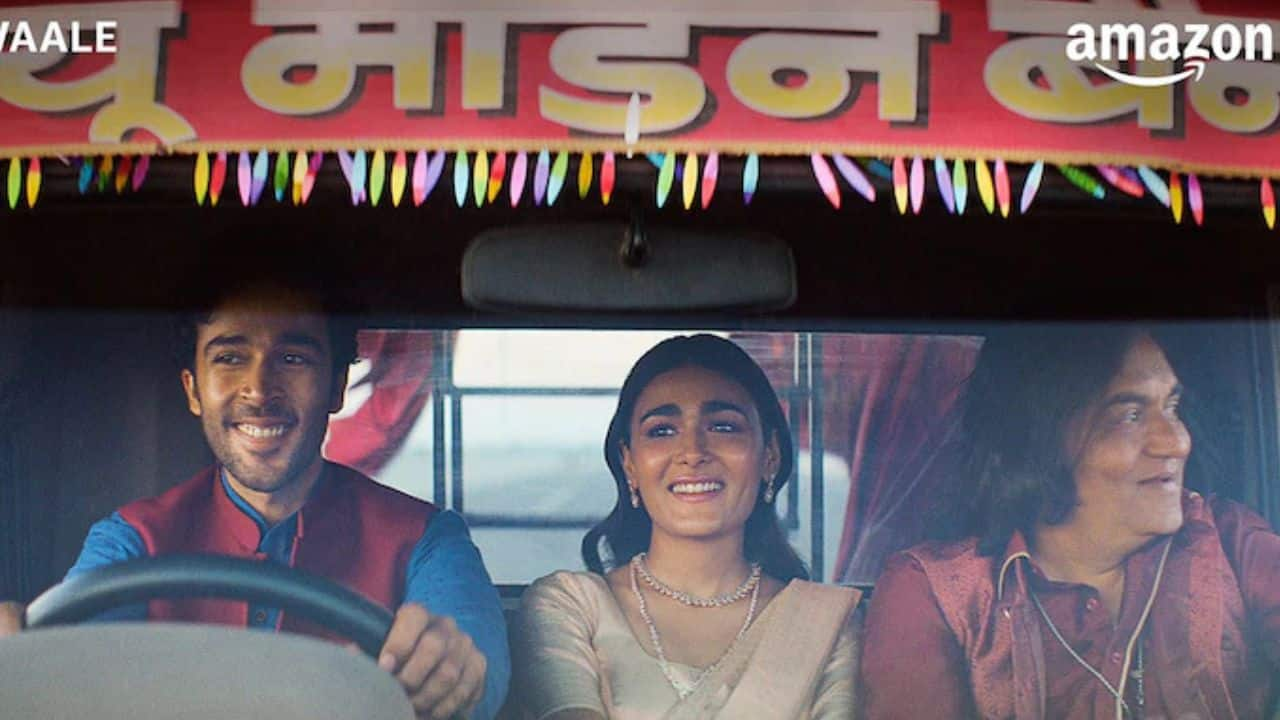 'Bandwaale' (Amazon Prime), the first web-series Zahan Kapoor worked in, remains unreleased.
'Bandwaale' (Amazon Prime), the first web-series Zahan Kapoor worked in, remains unreleased.
Hansal Mehta’s Faraaz was an unlikely debut for a Kapoor scion — no grand launch, like his more famous cousins. “I signed Faraaz in 2019. I had just started rehearsals for Pitaji Please when I met Hansal Sir and I jumped at the idea of working with him. He was curious and thought I fit the part of the boy. I had no idea about the character or story. I didn’t even know about the incident when I met them,” says Zahan. Faraaz reimagines the 2016 terrorist attack at Dhaka’s Holey Artisan Bakery.
Mehta’s films are all about characters and their stories, and “I was really excited that I was getting a chance to work with a director who really understands performances and character,” he adds. With no script in hand, “it was a process-first approach, not a result-oriented approach. We went on a research trip to Dhaka, Bangladesh. I jumped in deep with a master to discover things,” he says.
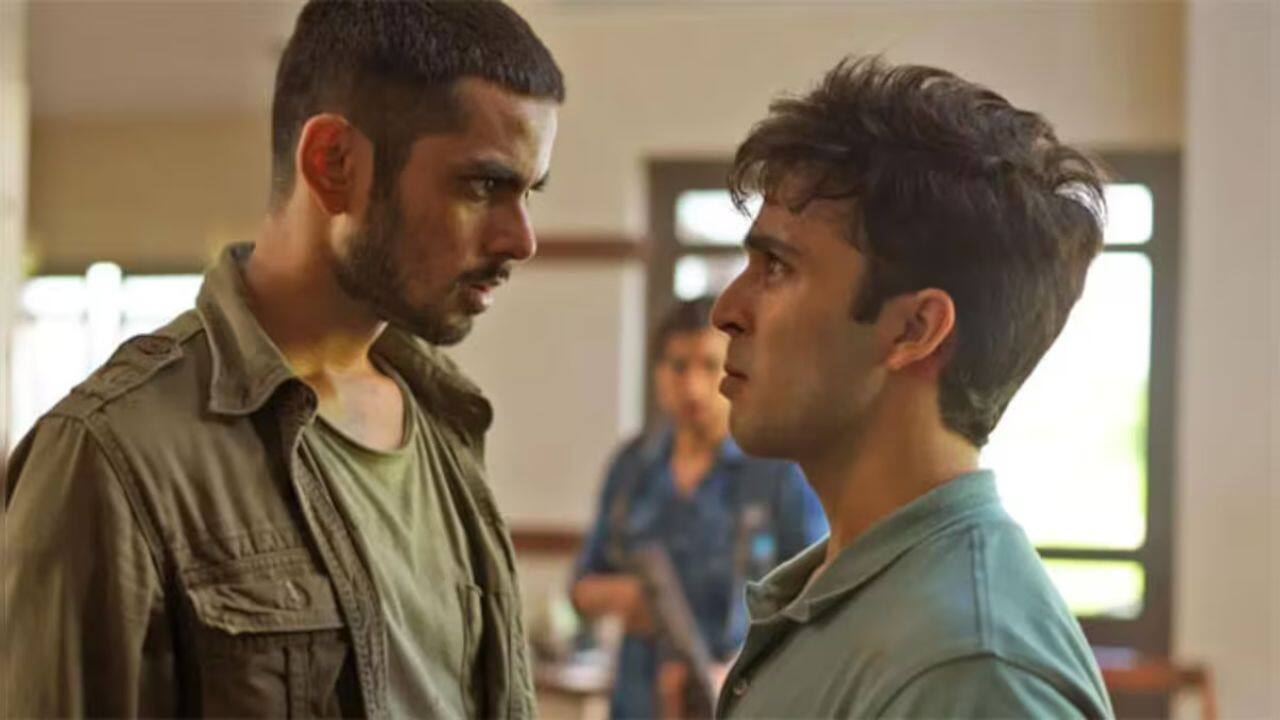 A still from Faraaz.
A still from Faraaz.
Zahan, in spite of playing the hero, had a smaller role compared to the antagonist essayed by Aditya Rawal. Once during the shoot, after Mehta okayed his shot, Zahan felt he could do it better and wanted another go at it. Mehta told him there’s no need for further takes, and to just trust the director. The actor saw the difference between theatre being an actor’s medium and cinema being a director’s. The lesson Zahan learnt was to not overdo things just because you want to feel you’ve worked hard for it.
His debut film tanked. Facing criticism “was difficult,” he admits. A pall of gloom hung over him for a while. “But I have no regrets. Yes, a few things could have been done differently. Maybe I would have wanted more or less of something. But, at the end of the day, it is an honest attempt at trying to champion a story that is pure of heart. Even in the criticisms, I don’t think there’s disrespect. There’s a sense of disappointment. People said that I showed promise and they wanted more of me. Now, that’s great. I took it as a compliment that I have been able to build that expectation. People recognise it’s a difficult role to do. It’s a very passive role in a story that spans 12 hours, and in that time, how can you gauge the journey of a character with so little agency?”
The film, however, in its wake birthed an artistic friendship. Zahan became close to Aditya Rawal, son of actors Paresh Rawal and Swaroop Sampat. The two young men share a shared passion for theatre and sports. Zahan collaborated with Aditya on a play the latter wrote — Siachen (2023), an ‘anti-war play’ which turned into a survival drama set on the world’s highest and coldest battlefield atop a glacier. The ambitious play demanded a seasoned directed. Off went the young men to “Mak Sir”.
 (From left) Makarand Deshpande, Zahan Kapoor and Aditya Rawal.
(From left) Makarand Deshpande, Zahan Kapoor and Aditya Rawal.
“Our families — Aditya’s and mine — have taught us how to be blue collar in our approach,” Zahan says, “to do the work required, be respectful and considerate. At the end of the day, it’s the work that matters.”
ALSO READ: Staging Siachen: Survival drama, from the world’s highest battlefield to Mumbai’s Prithvi Theatre
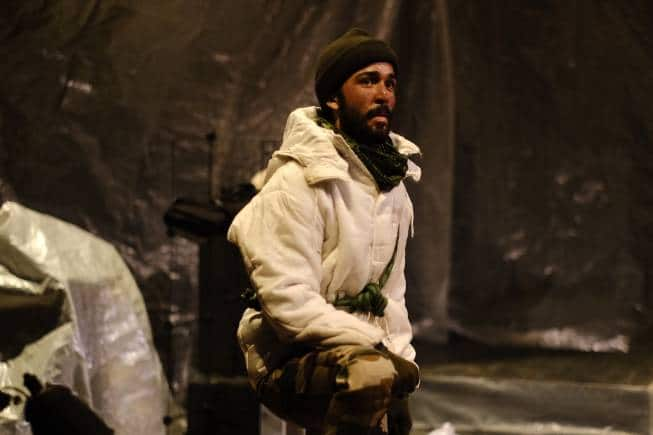 Zahan Kapoor in a scene in the play 'Siachen'.
Zahan Kapoor in a scene in the play 'Siachen'.
And it is, indeed, his work in Black Warrant that has grabbed eyeballs. The show has been adapted from the book Black Warrant: Confessions of a Tihar Jailer (2019) by Sunil Gupta and Sunetra Choudhury. Season One of the series registered 2.3 million views in just three days of releasing this January on Netflix, it was in the top 10 list of most-watched non-English shows globally, and is still in the Netflix Top 10 in India. “It has suddenly become this phenomenon,” he says.
Zahan as Sunil Gupta stands on his own. He brings a certain vulnerability to the character beneath the uniform in a coming-of-age story that makes him relatable. At a session in the Chandigarh fest, when Motwane spoke of Zahan’s value addition in terms of script and character, Zahan recounted how when he was asked to come up with notes for the show, their resulting meeting lasted for seven and a half hours. He’d re-read the book and jotted notes for every single scene. At one point, Motwane had to tell Zahan that he had other work to do — he was parallelly doing the final edit on his screenlife thriller film CTRL (2024). “To be a part of that process is so rare for an actor,” he says, “and so empowering because it shows what it means to serve a story.”
ALSO READ: Vikramaditya Motwane: ‘I’m an enabler not disruptor, that’s Anurag; we are a very sensitive country’
How did the actor prepare for the role? Zahan could only meet Sunil Gupta, the former police superintendent of Tihar Jail, very briefly. “Thankfully, there were interviews, video recordings and articles for me to reference from. A lot of research went into it. I had a dialect coach. The body language, look (Chaplinesque moustache) and feel, hairstyle, every little detail goes into preparing for the role. I don’t have a particular method, I’m still exploring and figuring it out as I go along. I’m reading as much as I can about the craft and listening to people about their process,” says the Black Warrant actor, “I love direction. I need direction. I prefer rehearsals. I don’t like improvising too much. But that may be my limitation right now.” What he brings to his characters is something he practises in life: building the capacity for empathy.
Zahan had to face four directors — Satyanshu Singh, Arkesh Ajay, Rohin Raveendran Nair, and Ambiecka Pandit — and, of course, Motwane the series showrunner. “It was a unique challenge. We were all doing it for the first time. There were some very hard days. But we learnt so much, about teamwork, camaraderie and tuning,” he says, “I had the privilege of being in the central character’s shoes but the burden of that, and the sheer volume of work, was non-stop, for me particularly. There were days when I was exhausted and holding on for dear life. I would barely even get lunch breaks or if I did, it would not be for more than 15-20 minutes. It was tough and gruelling.”
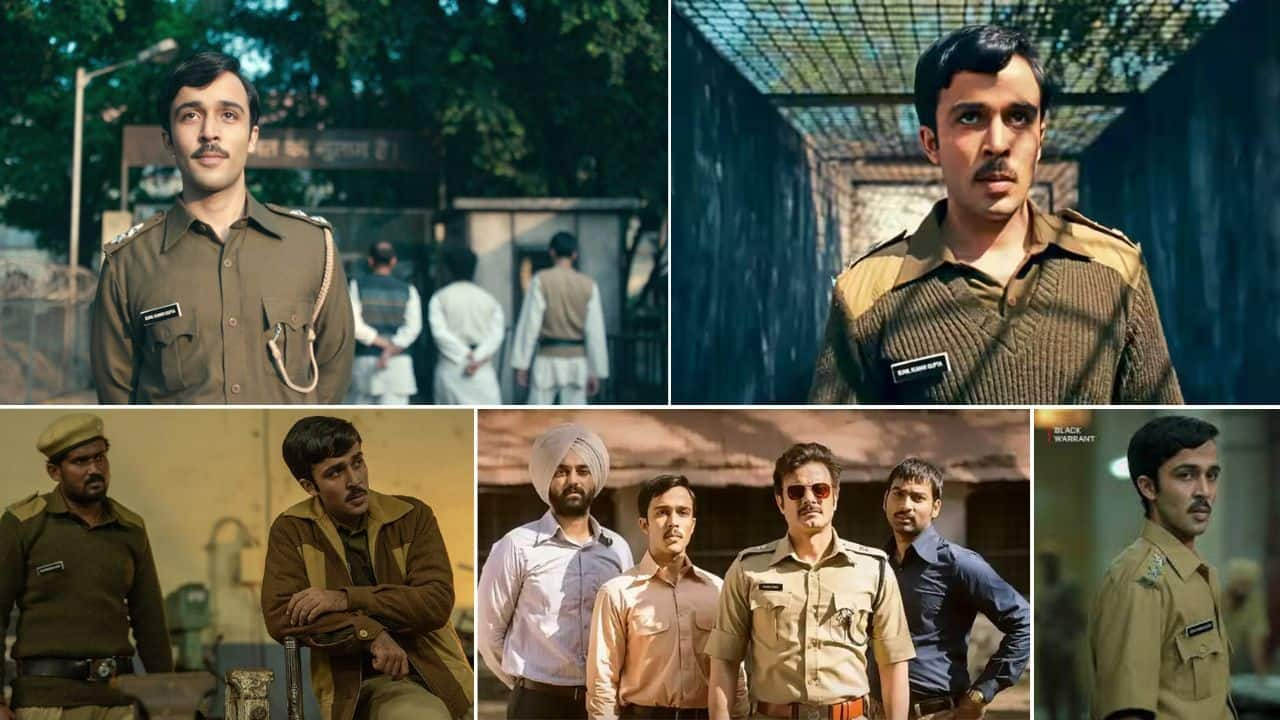 Stills from Black Warrant.
Stills from Black Warrant.
A take-no-prisoners Motwane was strict on set — “but he’s also very generous and accommodating. He just doesn’t like faffing and time-pass. He’s diligent, dedicated, very meticulous, and thorough. Just watching him in the thick of things was a beautiful experience,” says Zahan, whose drive comes from his biggest fear: “that I need to make the most of my opportunities if I’m given an advantage. It’s my duty to perform to the best of my abilities, given all of these resources and blessings.”
It wasn’t easy to walk in and out of the character of Sunil Gupta, he declares. How did he zoom out post-shooting? “I waste a lot of time on social media. But I’m going to fix that,” says the millennial. He also “spends time with loved ones; unwinds on the beach, does physical and mindfulness exercises, swims, horse-rides, meditates and does breathwork — these are very important and keep me centred and balanced,” he says.
Zahan reads quite a bit. Just not novels. Short stories and journalistic writing — besides scripts of films/plays — piques his interest. Of late, he feels an uncanny pull of poetry, “I read a lot of poetry in Hindi,” he says, “It also helps me [as an actor]. I want to get better and better at the language.” His current go-to poet is Nida Fazli. He has read a bit of Gulzar and is trying to discover Javed Akhtar’s poetry. “You are transported into a different zone when you read the poems. I’m amazed at how so many emotions are communicated in so few words. I love metaphysics, cosmology, all these kinds of heady philosophy and poetry. And I also love simpler things like horses and the sea,” says Zahan, whose tastes are eclectic. In music, too. From classical to contemporary, rock ‘n’ roll to Sufi. Portuguese to Arabic and Ethiopian music. From Nigerian jazz to folk music.
To look, again, at Zahan Kapoor and hear his measured thoughts is, to quote from Russian author Ivan Turgenev’s Fathers and Sons (1862), to witness that “the ‘why not’ of youth, the secret desire to know his luck, to try his strength all on his own without the support of another, eventually won through.” Before I let him go, his wizened-over-the-years wisdom urges me to enquire about his age. The quick-witted Zahan is ready with his repartee: “I’m as old as the casting director wants me to be.” He is 33.
Discover the latest Business News, Sensex, and Nifty updates. Obtain Personal Finance insights, tax queries, and expert opinions on Moneycontrol or download the Moneycontrol App to stay updated!
Find the best of Al News in one place, specially curated for you every weekend.
Stay on top of the latest tech trends and biggest startup news.